This article provides a detailed guide on 10+ Best AI Coding Agents — exploring how these intelligent assistants are transforming the way developers write, debug, and deploy code.
If you’re curious about the latest AI tools that can help automate software development, speed up testing, and enhance productivity, read on for extensive information and expert advice.
Artificial Intelligence has entered almost every industry, and coding is no exception. Developers today are not just using IDEs — they’re working side by side with AI-powered coding agents that understand natural language, generate functions, and even fix bugs autonomously. These agents are becoming the next big leap in software development.
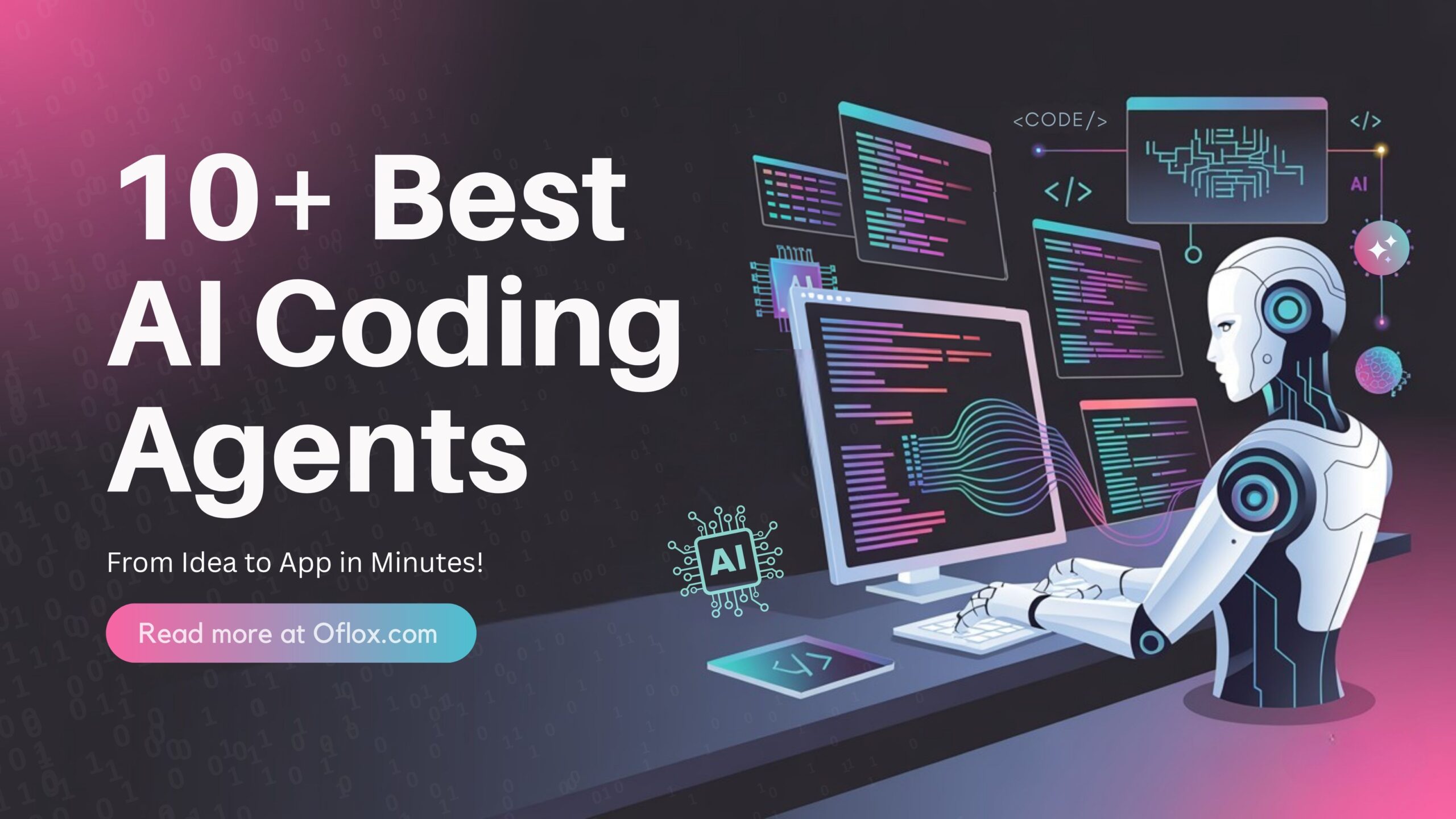
Join us as we explore the 10+ best AI coding agents, their features, use cases, and why they’re becoming essential for every modern developer.
Let’s explore it together!
Table of Contents
What Are AI Coding Agents?
An AI coding agent is an intelligent software program that can perform programming tasks on behalf of a human developer. It uses natural language processing, code understanding, and machine learning models to write, review, and optimize code automatically.
Unlike basic AI code completion tools (like autocomplete or snippets), AI coding agents can analyze entire projects, understand context, and execute multi-step coding actions such as debugging, writing documentation, or deploying updates.
“AI coding agents are not here to replace developers — they are here to empower them.” — Mr Rahman, CEO Oflox®
For example, you can type: “Build a login system in Node.js with JWT authentication,”
The AI coding agent will generate the full project structure, code, and even test cases.
These tools are becoming essential for developers who want to focus on logic and creativity while letting AI handle repetitive tasks.
Why Developers Are Switching to AI Coding Agents
Here’s why developers, startups, and enterprises are moving fast toward AI agents:
| Benefit | Description |
|---|---|
| Speed | AI agents can code, test, and refactor in seconds. |
| Understanding | They analyze complex dependencies and project logic. |
| Automation | Routine tasks like boilerplate code, documentation, and tests are handled automatically. |
| Natural Communication | You can code just by chatting — no syntax errors. |
| Security | Some agents scan vulnerabilities as they code. |
| Collaboration | Teams can use shared contexts for faster code reviews. |
| Efficiency ROI | Developers report saving 40-70 % of development time. |
“AI coding agents are not here to replace developers — they are here to empower them.” — Mr Rahman, CEO Oflox®
Key Features to Look for in an AI Coding Agent
Before choosing one, make sure your coding agent includes the following:
| Feature | Why It Matters |
|---|---|
| Multi-language support | Enables cross-platform development (Python, JS, Java, etc.) |
| Context memory | Remembers previous tasks for consistent code |
| Code explanation | Helps beginners understand what’s generated |
| Test automation | Generates and runs test cases automatically |
| Security checks | Scans for vulnerabilities before deployment |
| Integrations | Works with GitHub, VS Code, Replit, etc. |
| Customization | Allows prompt templates and agent tuning |
| Collaboration tools | Enables team usage and shared coding sessions |
10+ Best AI Coding Agents (2026 Edition)
Here’s the curated list of the top AI coding agents dominating the development world in 2026.
1. CodeGPT

CodeGPT is one of the most advanced AI coding agents built for professionals. It integrates directly into your code editor and learns from your existing projects.
Website: codegpt.co
Key Features:
- Context-aware code generation
- Automated refactoring suggestions
- In-depth documentation generation
- Secure team collaboration
Pros
- Excellent for enterprise teams
- Understands complex codebases
- Integrates easily with VS Code
Cons
- Slightly premium pricing
Best for: Professional software developers and agencies.
2. Replit AI Agent
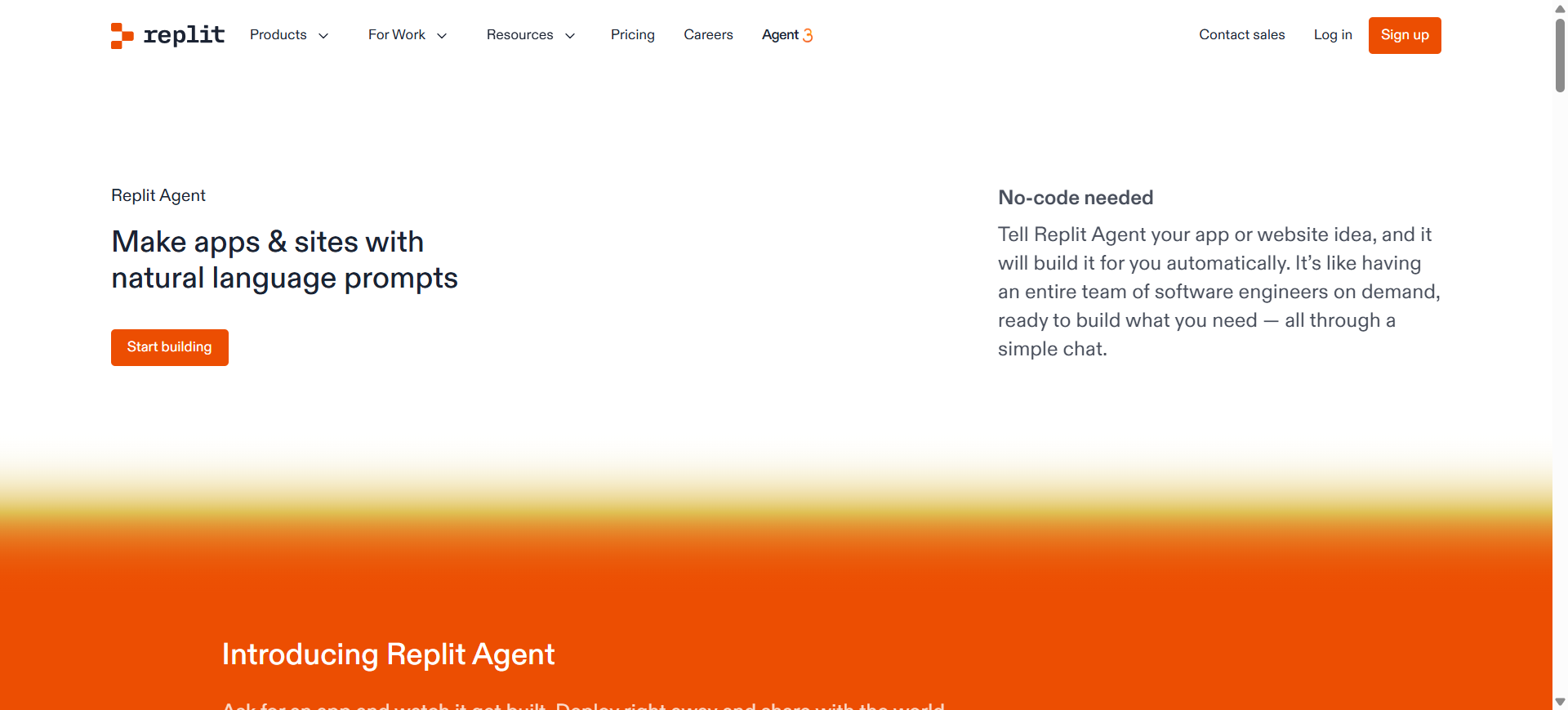
Replit’s AI Agent is a complete cloud-based environment where you can code using natural language and deploy instantly.
Website: replit.com/ai
Key Features:
- “Explain code” and “Fix bug” prompts
- Real-time collaboration
- Auto-deployment
Pros
- Perfect for beginners
- No local setup needed
Cons
- Limited customization
Best for: Students, freelancers, and new startups.
3. Cline (Best Open-Source Option)

Cline Ai lets you self-host your AI coding agent and keep your data private.
Website: cline.bot
Key Features:
- Works offline
- API integration with custom LLMs
- Self-hosting options
Pros
- 100 % data privacy
- Great for enterprises with security policies
Cons
- Requires some technical setup
Best for: Developers who want full control.
4. Zencoder AI
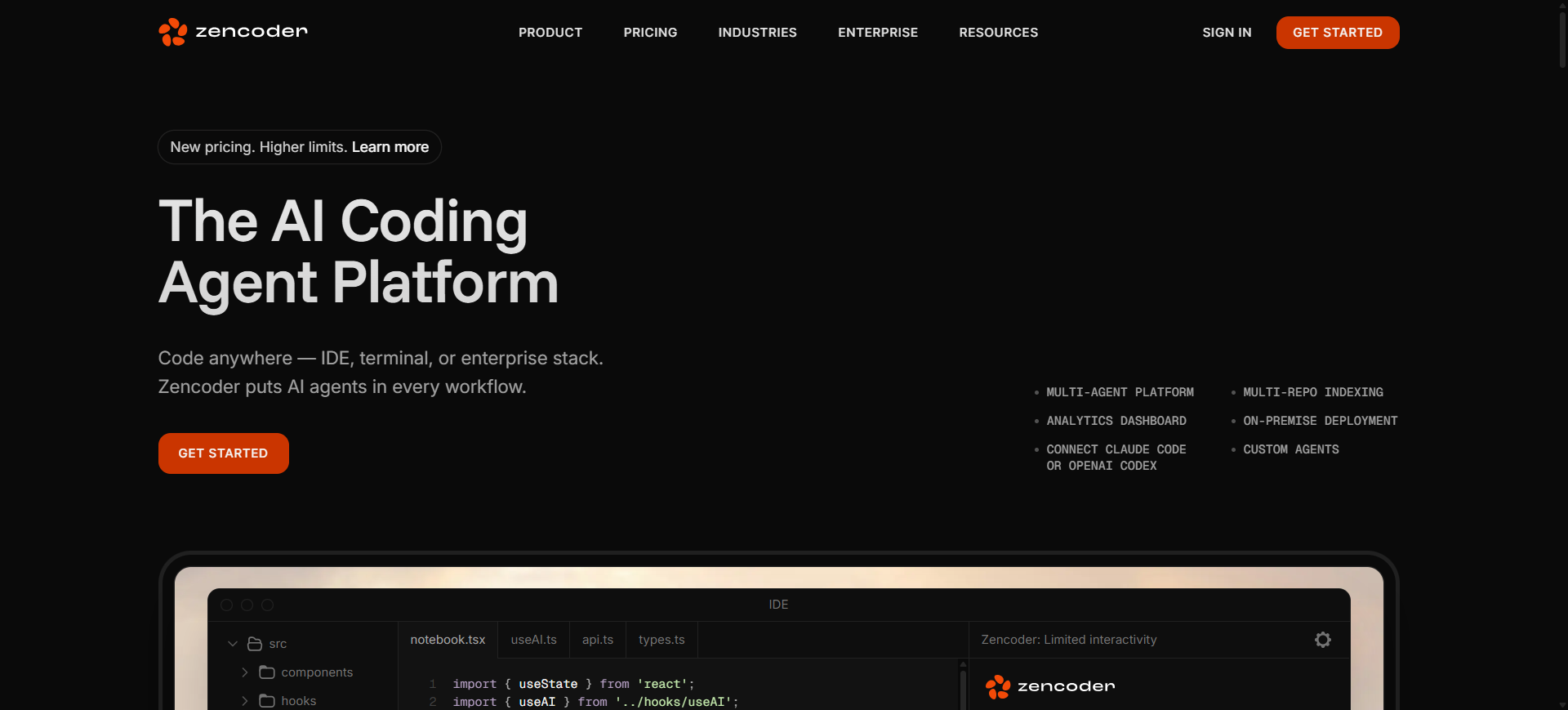
Zencoder is a professional-grade agent for automated testing and refactoring of enterprise applications.
Website: zencoder.ai
Key Features:
- Code audits
- Auto test-case generation
- Continuous Integration support
Pros
- Strong QA automation
- Ideal for large teams
Cons
- Slight learning curve
Best for: Enterprise-level projects.
5. Augment Code
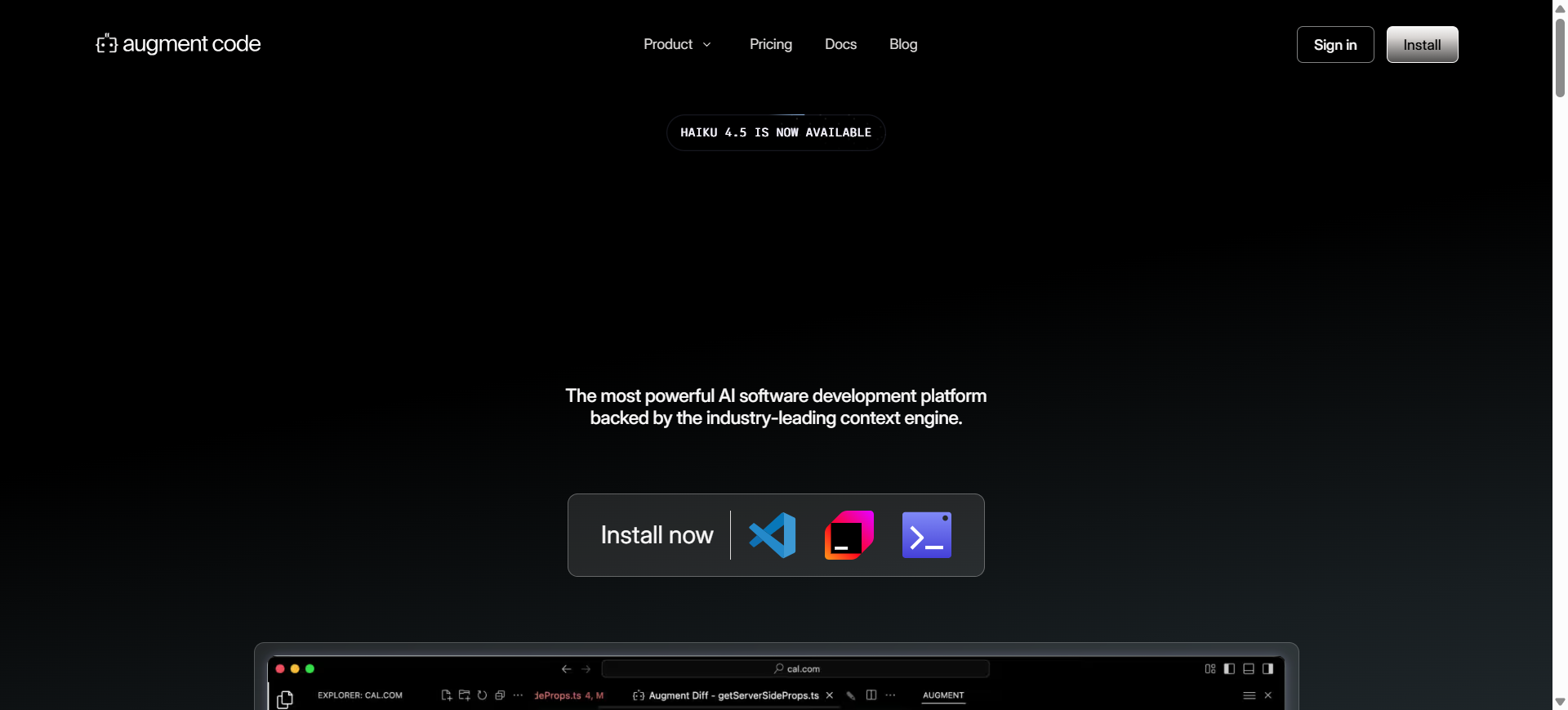
Augment Code is designed for collaborative AI-driven development, helping teams code smarter together.
Website: augmentcode.com
Key Features:
- Multi-user project management
- Live debugging chat
- Real-time feedback loops
Pros
- Excellent for distributed teams
- Great code-review automation
Cons
- Requires a constant internet connection
Best for: Agencies and remote teams.
6. Cursor
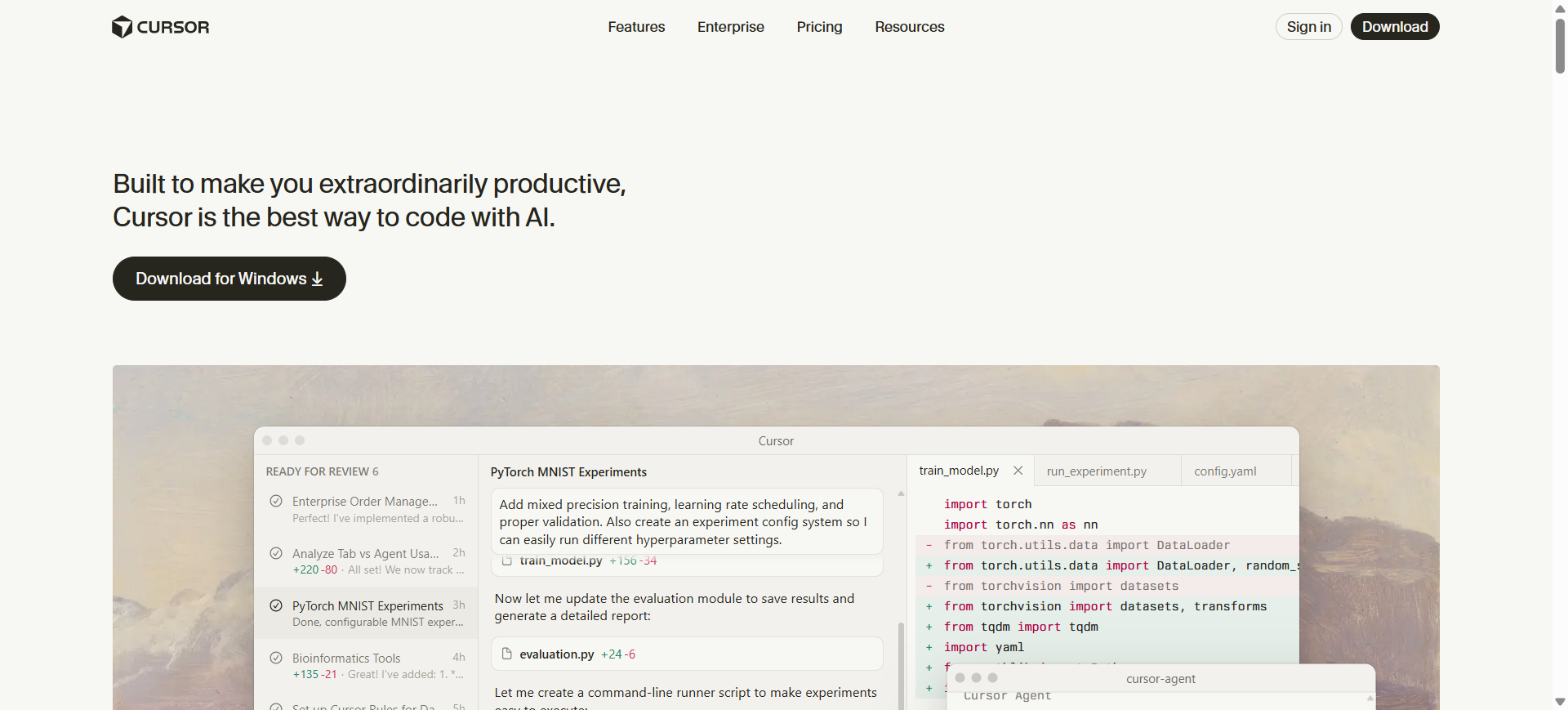
Cursor is famous for its deep project context memory — perfect for developers handling large, ongoing projects.
Website: cursor.so
Key Features:
- Context retention across sessions
- Inline conversation window
- Integrates with VS Code
Pros
- Simple interface
- Excellent long-term memory
Cons
- Limited integrations
Best for: Backend developers and data engineers.
7. Bolt
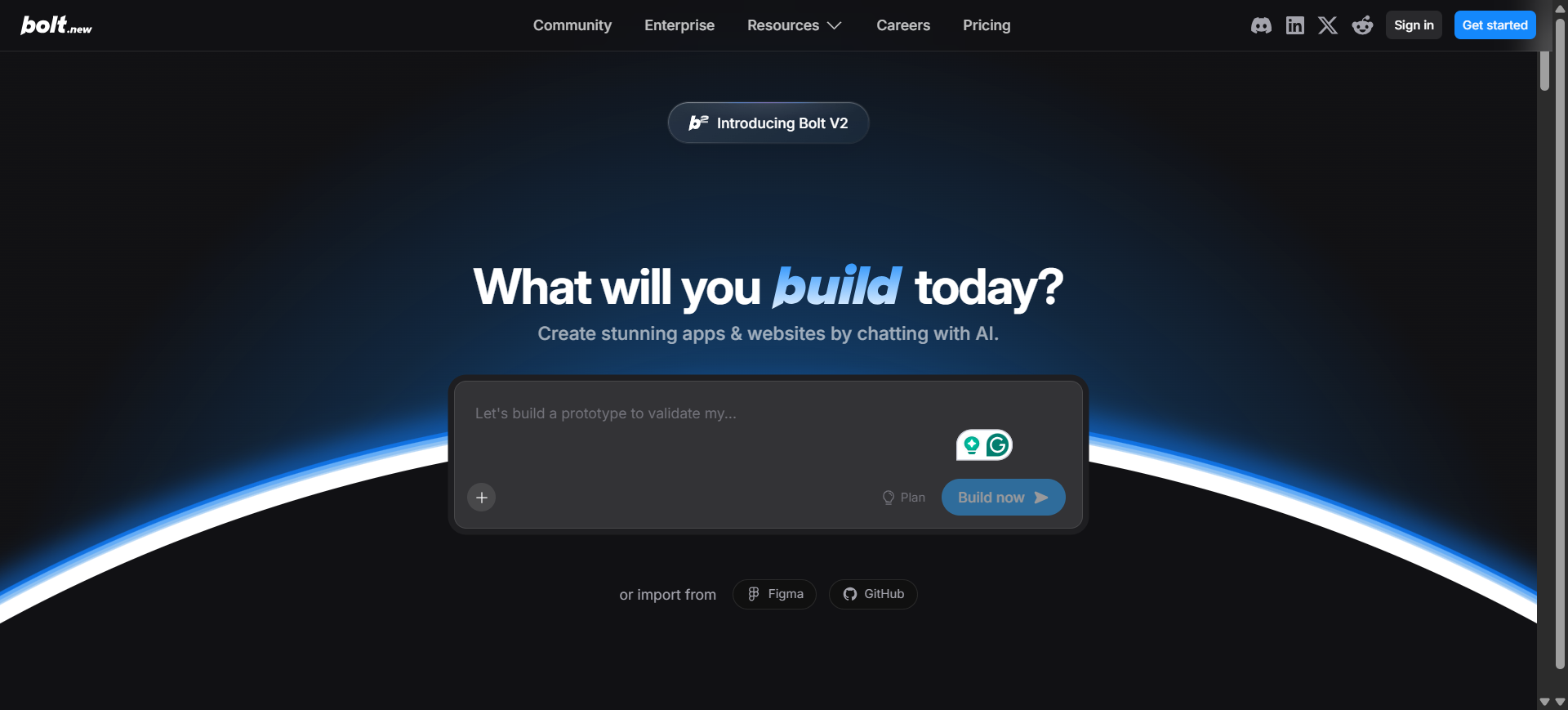
Bolt is an AI platform for building full-stack apps from one prompt. Ideal for SaaS and mobile prototypes.
Website: bolt.new
Key Features:
- Auto UI creation
- Backend API setup
- Deployment to Vercel
Pros
- Great for startups
- Minimal learning curve
Cons
- Less control for advanced users
Best for: Entrepreneurs and students.
8. Lovable
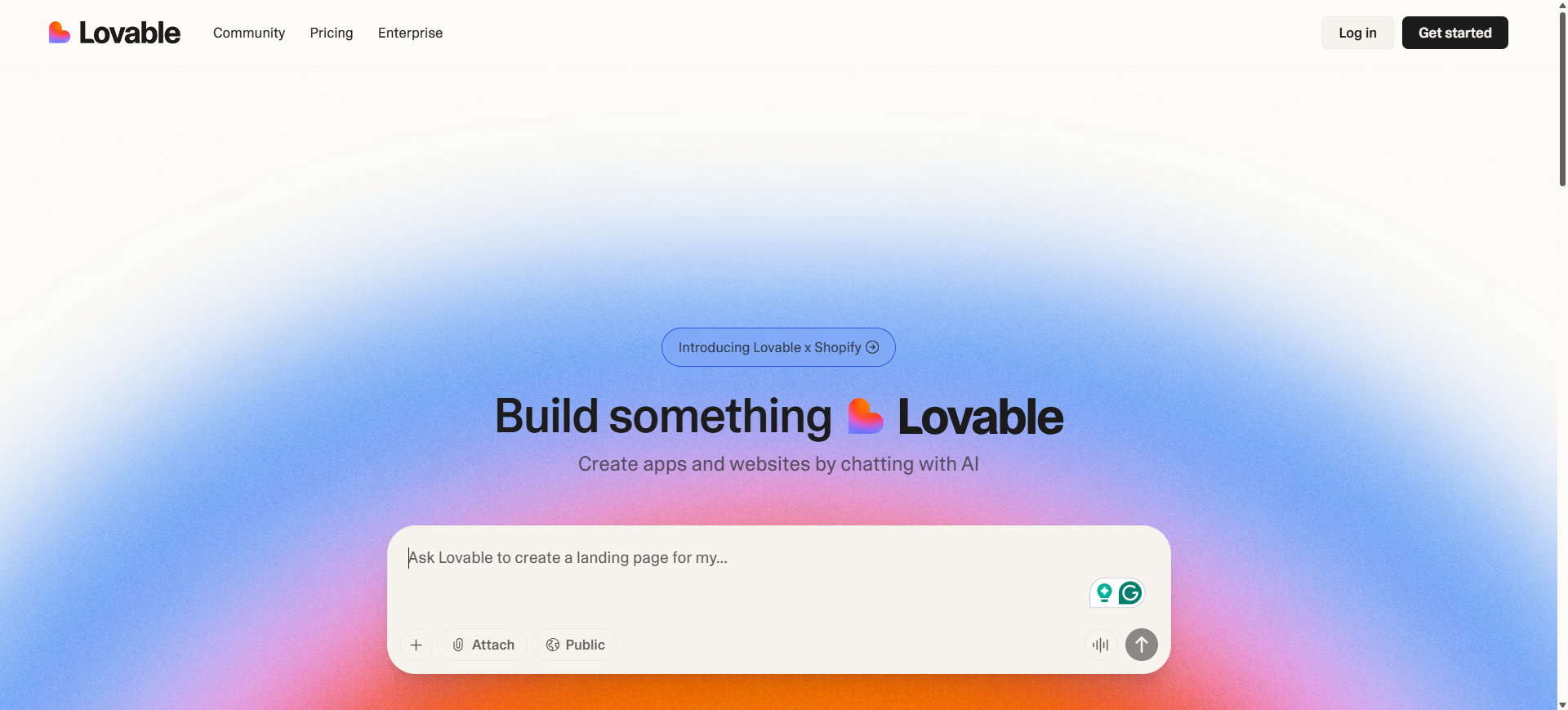
Lovable merges visual design and AI coding — bridging the gap between designers and developers.
Website: lovable.dev
Key Features:
- Drag-and-drop UI
- Real-time code generation
- Cloud preview
Pros
- Designer-friendly
- Speeds up front-end creation
Cons
- Limited backend support
Best for: UI/UX designers & front-end teams.
9. Snyk AI
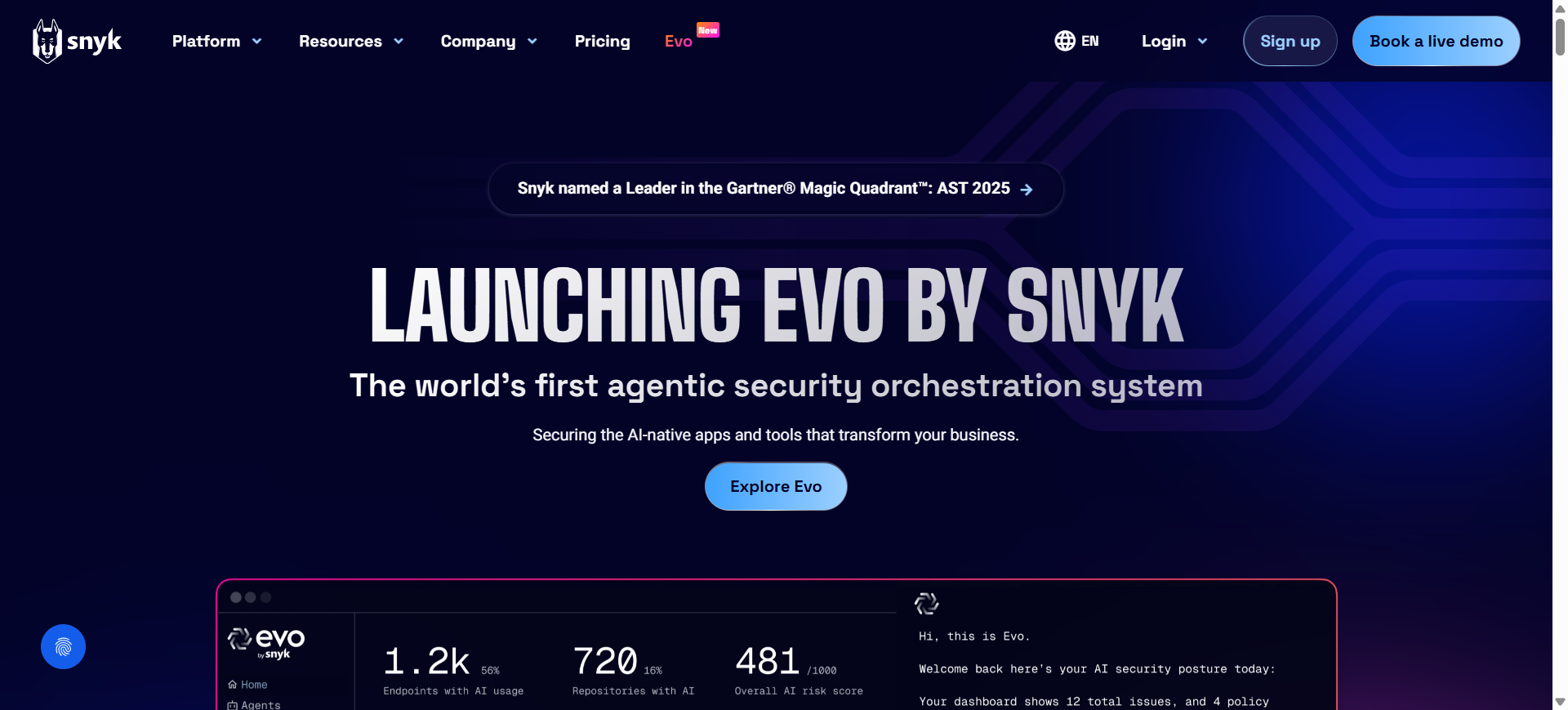
Snyk’s AI agent helps you write secure code. It identifies vulnerabilities and provides safer alternatives.
Website: snyk.io
Key Features:
- Code security scanning
- Dependency risk analysis
- Auto-fix recommendations
Pros
- Enterprise-grade security
- Integrates with Git & CI/CD
Cons
- Focused only on security
Best for: Security-sensitive organizations.
10. OpenAI Codex
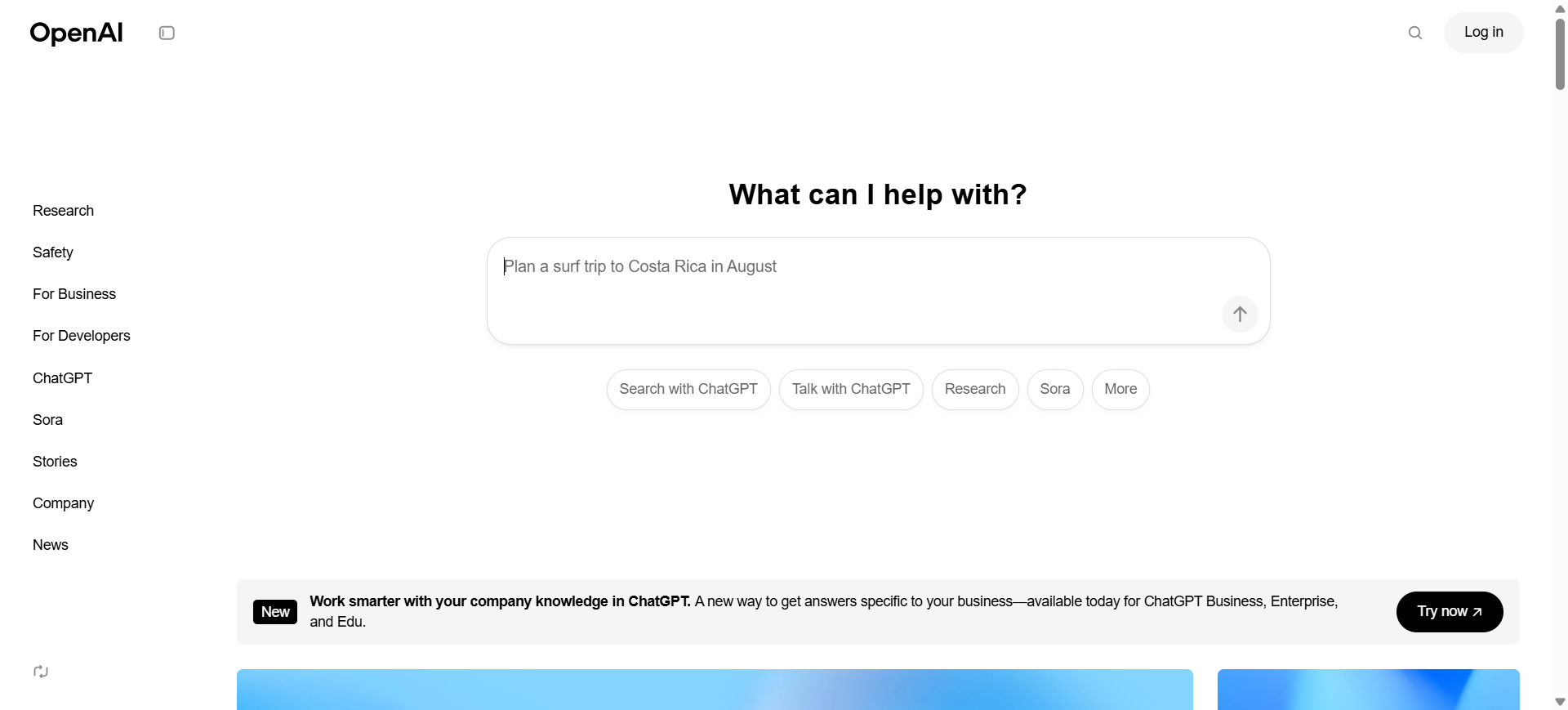
The famous OpenAI Codex is the model behind GitHub Copilot — one of the first and most capable AI coding agents.
Website: openai.com
Key Features:
- Converts natural language to code
- Supports 100+ languages
- Code autocompletion and explanation
Pros
- Reliable & accurate
- Extensive community support
Cons
- Cloud dependency
Best for: Professional developers & coders.
11. AutoGPT

AutoGPT is a fully autonomous AI agent that can plan and execute coding projects end-to-end.
Website: autogpt.net
Key Features:
- Self-debugging
- Multi-task workflow
- Integration with external APIs
Pros
- Hands-free execution
- Highly experimental
Cons
- Requires strong system resources
Best for: AI researchers and automation enthusiasts.
Real-World Use Cases of AI Coding Agents
- Solo Developers: Build prototypes faster without hiring extra help.
- Startups: Launch MVPs quickly using an AI-generated backend and frontend.
- Agencies: Automate repetitive development tasks.
- Enterprises: Improve testing efficiency and reduce bugs.
Example: A startup using CodeGPT reported saving 40% of their development time when building an internal CRM tool.
Benefits and Risks of AI Coding Agents
Benefits
- Save hundreds of development hours.
- Improve code quality and maintain consistency.
- Enable non-coders to create simple applications.
- Help reduce human errors and increase deployment speed.
Risks
- Over-reliance may reduce manual coding skills.
- Privacy concerns with cloud-hosted models.
- Potential generation of insecure code.
Pro Tip: Always review AI-generated code before pushing to production.
Best Practices for Using AI Coding Agents
- Start Small – Try with a single project or module.
- Define Clear Prompts – Be specific about what you want.
- Human Review – Always verify code manually.
- Monitor Metrics – Track time saved, code quality, and bugs.
- Stay Updated – Follow new features, updates, and policies.
Future of AI Coding Agents
The next generation of AI agents will collaborate — one writing code, another testing it, and another deploying it automatically. They’ll become more context-aware, security-compliant, and even capable of managing full projects with minimal supervision.
The fusion of AI + software development is creating what many call the “autonomous developer era.”
FAQs:)
A. Most tools offer free trials or limited versions, but premium features are paid.
A. Replit Agent and Bolt are great starting points for beginners.
A. Use agents with privacy options or self-hosting (like Cline) for better control.
A. No, they enhance productivity — human logic and oversight remain essential.
A. Most support Python, JavaScript, TypeScript, C++, Java, and more.
Conclusion:)
AI coding agents are not just futuristic tools — they’re the new reality of software development. From writing code to deploying apps, these intelligent assistants are revolutionizing how developers work.
“AI coding agents don’t replace creativity — they amplify it.” — Mr Rahman, CEO Oflox®
Read also:)
- What is Open Artificial Intelligence: A-to-Z Guide for Beginners!
- What Is Multimodal AI: The Future of Human-Like Intelligence!
- What Is Grokipedia: The AI-Powered Encyclopedia by Elon Musk!
Have you tried AI coding agents in your workflow? Share your experience or ask your questions in the comments below — we’d love to hear from you!